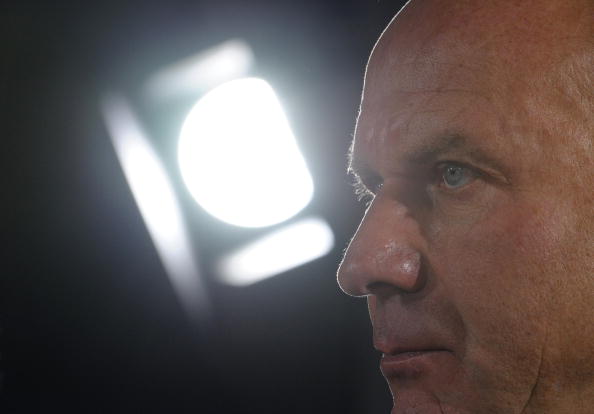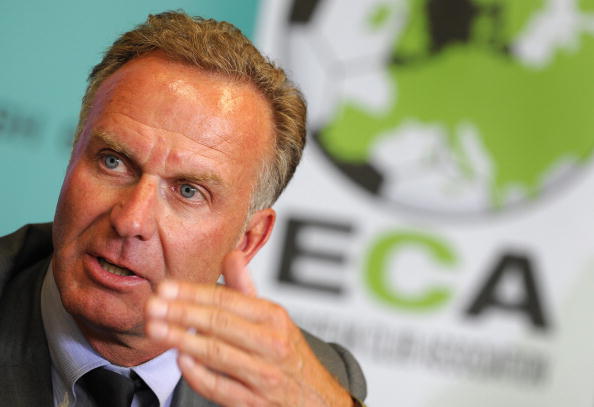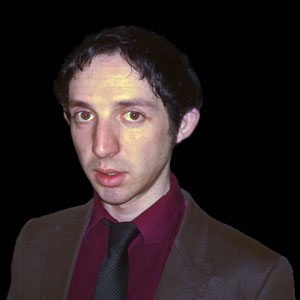Given how Karl-Heinz Rummenigge, the legendary former Germany forward and chair of the European Clubs Association (ECA), had compared Sepp Blatter’s FIFA reign to Hosni Mubarak’s dictatorship in Egypt and threatened to bring it to a similar end, there was surprise among the assembled journalists at the President Wilson hotel last week when he seemed to retreat from his battle lines.
Just a month ago, the 95-times capped Germany forward, when asked if Blatter was fit for the job of FIFA President, responded by saying, “I’m not convinced.”
And a fortnight ago, he told Swiss magazine Bilanz that the 75-year-old needed to enact reforms “before his successor does it or before a revolution comes from outside,” adding for good measure that “Mubarak never imagined a year ago that he would be hounded from office.”
He also said that “FIFA and UEFA need the clubs for a World Cup or European Championship, but the clubs don’t need them. Theoretically we could play Bundesliga and Champions League – even without the associations.”
Fast forward to Geneva, and Rummenigge, having chaired the annual congress of the ECA, opted to remove the knife from Blatter’s back, rather than twist it further when given the chance.
“Yes, why not?” was the sanguine response to being asked whether he took back his remarks about Blatter, after one journalist had reminded him of his Mubarak comparison.
A Memorandum of Understanding (MoU) exists between FIFA, UEFA and the ECA which runs out in 2014, and when this happens, clubs will be under no obligation to release players for internationals. Rummenigge seemed confident that an agreement could be reached to renew the deal.
And it was not just on his criticism of Blatter that he retreated from last week. The prospect of clubs breaking away was cast aside with the idealistic “our goal is not to break away but to find good solutions, not just for clubs, but for football.”

Clearly not just adept at finding the net as a player, Rummenigge demonstrated his mastery of the art of politics with such a line. And where politics is played out, opinions change faster than a Jamaican 4×100 metres relay team, and Rummenigge was prolific in this particular respect yesterday. Not only did he take back his stinging rebuke of Blatter, but he also expressed confidence in his ability to reform FIFA, and said that he had been unfair to the FIFA President.
One thing that Rummenigge hasn’t changed his mind on though is the international calendar which is increasingly congested, pointing out that qualifying groups for World Cups and European Championships can involve “up to six or even seven teams,” compared with four in the past.
As it happens, during qualifying for the Euro 2008 tournament, there was one group that even had eight countries competing, ensuring a marathon 14 game qualification battle.
But these aren’t the games the ECA are opposed to releasing players for, and they were at pains to point out yesterday that they were only too happy to enable players to play for their countries in important games, even saying that international tournaments are the most important in football, putting another two points on the political scoreboard for Rummenigge and co.
It is the games that the German describes as “nonsense” games which the ECA are angry about losing their players for, and understandably so. Friendlies in August and June often serve little purpose even for national team coaches, who rarely learn much from games when their players are not in optimal physical condition.

So the solution they propose is six games per calendar year, with an extra two just prior to major international tournaments. Effectively this means either reducing the size of qualifying groups, or abolishing friendlies. It sounds eminently sensible, but the ECA’s opposition may not just come from the governing bodies, but from the world’s smaller international nations.
Then there are the South American qualifiers. South America’s 10 nations play each other in one large group home and away during qualifying, which normally means 18 matches being played over the course of just over two years, though as Brazil qualify as hosts for the next tournament there will be 16 games played to reach the 2014 World Cup.
Squeezing a full South American qualifying campaign into a calendar that allows for just six qualifying games per year is an impossible task. One solution could be to start earlier, but this could clash with the quadrennial Copa America, which precedes the beginning of World Cup qualifiers.
Another idea may be to split South American qualifying in two, forming two groups of five. But for smaller nations such as Bolivia, Venezuela and Ecuador the guarantee of playing both Argentina and Brazil at least twice in every four year cycle has been crucial to them both increasing the money they can generate as well as becoming more competitive on the international scene. Venezuela and Ecuador in particular have made huge strides over the last decade as a result of the 10-team format which was introduced for the 1998 World Cup.
Similarly, the 32 team World Cup and the 24 team European Championships, which will start in France in 2016, seem to be irreversible forces that the ECA will struggle to rein in. Since his election, Platini has made changes that have been popular among the continent’s smaller nations, giving their domestic champions more representation in the European Champions League, and soon in the European Championships as well. Convincing these nations to go back 10 years seems unlikely, and the same goes for trying to reduce the number of sides competing in the World Cup.
All of which goes to show that even if the Rummenigge-Blatter relations may have thawed for now, the ECA chief has more obstacles than simply FIFA to overcome to make the changes he so desperately wants to make to the international football calendar.
David Gold is a reporter for insideworldfootball

